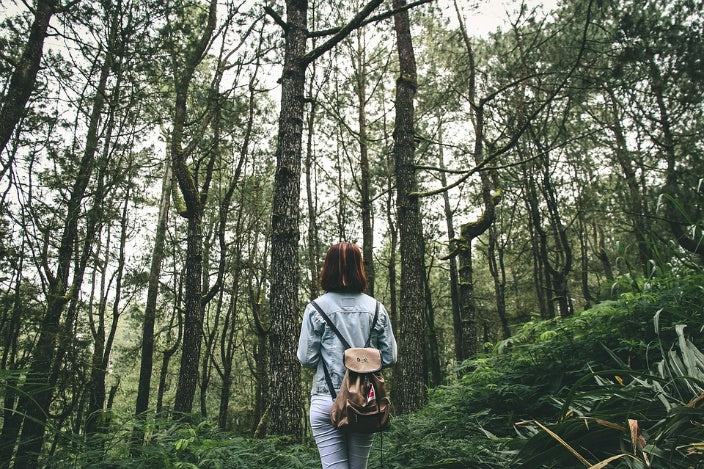
Mar 21 , 2017
6 Tips for Surviving if Stranded in the Wilderness
Here in the 21st century, theres a cell phone in virtually every palm, not to mention GPS technology almost everywhere. The good news is its harder than its ever been to become truly lost and stay that way. The bad news is people are often less prepared for that possibility if and when it arises.
That said, everyone should know what to do if they ever found themselves stranded in the wilderness, especially if they camp, hike, or hunt on a regular basis. Keep the following tips in mind to ensure your survival.
1. Think things through.
If you do happen to find yourself lost in the wilderness, consider all the possible options you might have at your disposal right off the bat. If you come to the conclusion that the best course of action is to try to seek out help on foot, take action sooner rather than later while your endurance levels and strength are still working for you.
2. Prepare shelter.
One of the first things youll want to do is decide how youll shelter yourself against the elements. If you dont have a tent with you, youll need to build what you can, using found items like branches, shrubbery, et cetera.
· If stranded in a hot environment, stay out of the sun and avoid sweating.
· If stranded somewhere marshy or damp, use branches or similar items to build a dry foundation on which to construct a lean-to or sleeping area.
· If stranded in a rocky area, look for natural shelters like overhangs.
· Stick to smaller shelters, as theyll better be able to insulate you against the elements.
Look for ways to make whatever shelter you choose as stable as possible as well.
3. Stay warm.
Everyone should have a basic understanding of how to start a fire in case they ever get stranded in the wild. Fires dont just keep you warm. They also provide protection from bugs and possible predators. Youll need them for cooking and boiling water as well.
When camping, always make sure you bring a first aid kit that contains a lighter or two just in case. There are other ways to start fires if you dont have any, but they definitely make the whole process easier.
4. Square away your water situation.
Even the hardiest, healthiest person wont be able to last more than three days without water, so making sure you have enough is one of the first things youll want to do if stranded. If youre fortunate enough to be near a stream, lake, river, or another source of fresh water, thats great. Youll just want to make sure you treat the water before drinking.
When camping or backpacking, always bring a portable water filter and purifying tablets with you in case of water shortage or emergency. If you dont have them, you can strain water through a clean cloth like a t-shirt to remove dirt and sediment. Then bring it to a rolling boil for several minutes in order to kill bacteria and other organisms.
5. Stay nourished.
Once youve secured a way to keep yourself safely hydrated, youll need to think about nourishment. The longer youre stranded, the more important adequate nourishment is going to become. Familiarize yourself with edible berries, roots, and other plants that tend to grow in the wilderness. (Camping or backpacking with a handy reference guide is also a good idea just in case.)
Make sure youre also (carefully) utilizing every possible source of nourishment at your disposal including fruit, eggs, leaves, and insects. Build traps to catch small animals, birds, fish, and more if you can. Protein is especially important when it comes to keeping your strength up.
6. Keep utility tools on you.
No matter how experienced you are, you should never go into or near the wilderness without certain tools at your disposal. You should have at least a pocket knife or other multi-tool on you all the time. Itll be a godsend when it comes to lots of survival activities, including protecting yourself and preparing food.
You should also keep a compass on you, in addition to a map if possible. Stranded without a compass? Use the stars! Make it a point to keep track of landmarks like mountains, rivers, or paths. Following them can eventually lead you safely back to roads and/or civilization.
At the end of the day, you can survive if you find yourself stranded in the wilderness. Its all about preparedness, as well as the ability to remain calm, cool, and collected.


